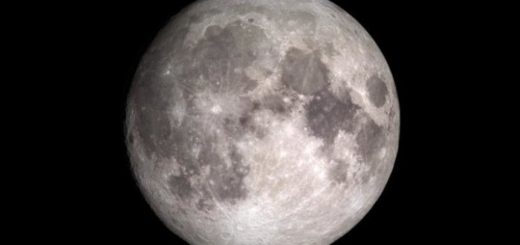NASA to Unveil Details of Quest for Alien Life

NASA is expected to unveil a strange breakthrough in the quest for alien life at a press conference today: the existence of life on Earth unlike anything we’ve seen before, and the possibility that we’ve simply been overlooking life elsewhere in our very own galaxy.
At a press conference set for Thursday at 2 p.m. EST, the space agency is expected to unveil an “astrobiology” finding” — announced in a press release that sent shockwaves through the blogosphere Wednesday. NASA has revealed only that it will discuss a discovery “that will impact the search for evidence of extraterrestrial life.”
Astrobiology is the study of the origin, evolution, distribution and future of life in the universe, and NASA is widely expected to announce that the discovery of arsenic-based life on Earth, a find that could change its future quest for life on other planets.
The concept of NASA discussing alien life has sparked interest across the Internet. Gawker, PC World, New Scientist and others all speculated about the news — even suggesting that the space agency may reveal that E.T. has finally arrived.
The reality may be less dramatic, though still intriguing: Based on the background of the four conference participants NASA cites, the announcement will probably concern lifeforms that live off of poisonous arsenic. Popular blogger Jason Kottke and others have concluded that the announcement will tie into the quest for life on Saturn’s moon Titan.
“I’d say that they’ve discovered arsenic on Titan and maybe even detected chemical evidence of bacteria utilizing it for photosynthesis,” Kottke theorizes, a hypothesis short of actually confirming alien life.
He notes that geobiologist Pamela Conrad was the primary author of a 2009 paper on geology and life on Mars, while oceanographer Felisa Wolfe-Simon has written extensively on photosynthesis using arsenic. Biologist Steven Benner is on the “Titan Team” at NASA’s Jet Propulsion Laboratory; they’re looking at Saturn’s largest moon as an early-Earth-like chemical environment. And ecologist James Elser is involved with a NASA-funded astrobiology program called Follow the Elements, which studies the chemistry of environments where life evolves, not just water, carbon or oxygen.
Despite the hype and rumors, Phil Plait of Discover Magazine urged rational calm, noting that an announcement of the discovery of extraterrestrial life “seems really unlikely.” Plait called overreactions par for the course, citing a June press release about the lack of acetlyne in Titan’s atmosphere “that sparked vast speculation.”
“Even though the press release was clear enough, it was misleadingly reported as NASA finding sings of life on Titan,” Plait wrote.
Forbes blogger Brian Caulfield agreed, noting that “Thursday’s news is probably a big deal” but “probably just not that big a deal.”
A story in London tabloid The Sun seems to reveal more details about Wolfe-Simon’s breakthrough discovery, made “during two years probing Mono Lake in California’s Yosemite National Park — which has one of the highest natural concentrations of arsenic on Earth.”
Of course, there is always the chance that NASA has discovered alien life — right? We’ll know for sure later today. Stick with FoxNews.com for complete coverage of NASA’s news conference Thursday at 2 p.m. EST and be sure to check out our Twitter feed for real-time updates.



 Creators of mankind
Creators of mankind Description of “Tall white aliens”
Description of “Tall white aliens” Where they came from?
Where they came from? About hostile civilizations
About hostile civilizations The war for the Earth
The war for the Earth “Tall white aliens” about eternal life
“Tall white aliens” about eternal life Video: “Nordic aliens”
Video: “Nordic aliens” Aliens
Aliens Alien encounters
Alien encounters The aliens base
The aliens base UFO
UFO Technology UFO
Technology UFO Underground civilization
Underground civilization Ancient alien artifacts
Ancient alien artifacts Military and UFO
Military and UFO Mysteries and hypotheses
Mysteries and hypotheses Scientific facts
Scientific facts


















